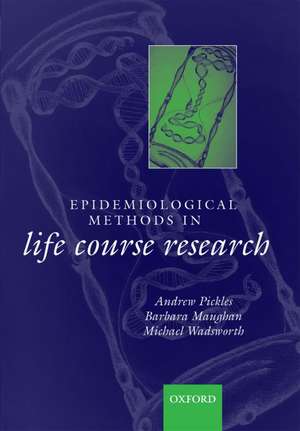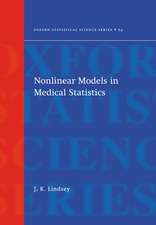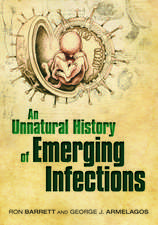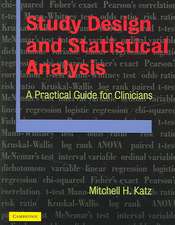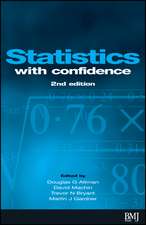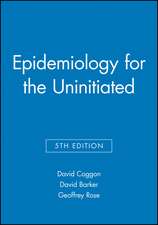Epidemiological Methods in Life Course Research: Life Course Approach to Adult Health
Editat de Andrew Pickles, Barbara Maughan, Michael Wadsworthen Limba Engleză Paperback – 28 iun 2007
Preț: 639.50 lei
Preț vechi: 837.34 lei
-24% Nou
Puncte Express: 959
Preț estimativ în valută:
122.38€ • 127.30$ • 101.03£
122.38€ • 127.30$ • 101.03£
Carte tipărită la comandă
Livrare economică 04-10 aprilie
Preluare comenzi: 021 569.72.76
Specificații
ISBN-13: 9780198528487
ISBN-10: 0198528485
Pagini: 274
Ilustrații: numeropus line illustrations and figures
Dimensiuni: 171 x 246 x 14 mm
Greutate: 0.48 kg
Editura: OUP OXFORD
Colecția OUP Oxford
Seria Life Course Approach to Adult Health
Locul publicării:Oxford, United Kingdom
ISBN-10: 0198528485
Pagini: 274
Ilustrații: numeropus line illustrations and figures
Dimensiuni: 171 x 246 x 14 mm
Greutate: 0.48 kg
Editura: OUP OXFORD
Colecția OUP Oxford
Seria Life Course Approach to Adult Health
Locul publicării:Oxford, United Kingdom
Recenzii
Persons interested in life-course epidemiology wtih benefit greatly from reading this book. Throughout, the authors appropriately emphasize the strong connections betweent eh current construct of life-course epidemiology and vigorous research traditions in epidemiology, biology, psychology and the social sciences. The interdisciplinary quality of the book is especially welcome...in conjunction wtih the othe two volumes in this Oxford series, this book is of interest to both experienced epidemiologist and those in training programs, in addition to life-course researchers in related fields.
...the book conveys both the conceptual as well as the practical complexities and methodological challenges associated with a life-course approach...[and] presents those challenges and offers a comprehensive overview of the methods available to successfully meet them.
...the book conveys both the conceptual as well as the practical complexities and methodological challenges associated with a life-course approach...[and] presents those challenges and offers a comprehensive overview of the methods available to successfully meet them.
Notă biografică
Andrew Pickles is a methodologist and statistician with a special interest in developmental psychopathology. His work spans genetics to long-term cohort and follow-up studies. Currently at the University of Manchester, he was previously senior statistician at the MRC Child Psychiatry Unit at the Institute of Psychiatry, London.Barbara Maughan's research focuses on psychosocial risks for psychiatric disorders in childhood, and on continuities and discontinuities between disorder in childhood and in adult life.Michael Wadsworth has directed and worked on the first British national birth control cohort study (the 1946 cohort), developing it as a resource of data on health throughout life and health change with age.
